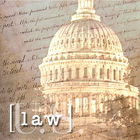
Article I, Section 1, US Constitution: First Amendment to the US Constitution: Fourth Amendment to the US Constitution: Seventh Amendment to the US Constitution:
|
WARRANTLESS NSA WIRETAPS RULED UNCONSTITUTIONAL FEDERAL COURT SAYS NO LEGAL OR CONSTITUTIONAL BASIS FOR ADMIN.'S CLAIM TO POWER TO DISREGARD JUDICIAL PROCESS 18 August 2006 A federal judge in Detroit ruled early yesterday that Pres. Bush's NSA surveillance program, which uses wiretaps implemented with no judicial oversight, is unconstitutional. The ruling strongly enforced the point that there are "no powers not created by the Constitution" rejecting the AG's claim that the Congressional Authorization for the Use of Military Force (in Afghanistan) as a legal platform for sweeping new domestic powers. Judge Anna Diggs Taylor specified that because there are "no powers not created by the Constitution" available to the president, "all 'inherent powers' must derive from that Constitution". This specifically takes issue with the attorney general's much criticized counsel suggesting the president can derive expansive new prosecutorial powers from laws specifically enacting Constitutional processes designed to permit overseas military action. More specifically, the NSA wiretap program —as argued by many legal experts and civil rights organizations, including the ACLU and the other plaintiffs— violates several Constitutional provisions and amendments, regarding the separation of powers, the interpretive role of the Judiciary, the oversight roles of both the Judiciary and the Legislature, and the individual liberties of innocent Americans. Judge Diggs Taylor used recent Supreme Court precedent to guide her decision, stating "We have seen in Hamdi that the Fifth Amendment of the United States Constitution is fully applicable to the Executive branch’s actions and therefore it can only follow that the First and Fourth Amendments must be applicable as well…" She also notes that all presidential powers are by definition constrained to those enumerated specifically in the Constitution. The ruling could mean that any evidence gathered by way of such methods would be inadmissible in a criminal prosecution. The Bush administration has announced it will fight the ruling, and has requested a stay against its being enforced. Such evidentiary constraints are part of the due process doctrine of American jurisprudence because evidence gathered by other means is considered to be conducive to less than transparent trial processes, i.e. processes where the government has too much influence over the nature of the case presented. The strangest aspect of the government's case has been that there appears to be no need whatsoever to circumvent the Foreign Intelligence Surveillance Act, which set up its own secret court (the FISC) for spying on spies and foreign agents. FISA allows warrants to be obtained retroactively, meaning that within existing laws, there is no risk of ever having to avoid gathering information due to the difficulty of obtaining a warrant. Here, it should also be added that the FISC is historically considered the surest of any to grant requests for warrants and wiretaps. Judge Diggs Taylor expressed indignation at the logic of the government's argument for the power to act without judicial oversight, writing that it depends on the notion that "pursuant to the penumbra of Constitutional language in Article II, and particularly because the President is designated Commander in Chief of the Army and Navy, he has been granted the inherent power to violate not only the laws of the Congress but the First and Fourth Amendments of the Constitution itself". The government's argument also includes a kind of legal failsafe not enshrined in US law. In the words of Judge Diggs Taylor, "Defendants argue that the state secrets privilege bars Plaintiffs' claims because Plaintiffs cannot establish standing or a prima facie case for any of their claims without revealing state secrets." The "state secrets privilege" is not a term of any American law. It is a staple power of the British monarchy, and has persisted in British law throughout the Parliament's rise and is still exercised by the Prime Minister. Of vital importance is the fact that the United Kingdom has no constitution; its governmental structure is based in 'Common Law', and an evolving set of doctrines and legal principles. While Common Law plays an undeniable role in American jurisprudence, the democratic system of government in the United States was specifically created by a Constitution and all government powers are enumerated by statutes which must follow that Constitution strictly. The "state secrets privilege" to which the government refers stems from a series of court rulings during the Cold War (and one from 1875, Totten v. US) in which the government successfully argued that publishing certain evidence could harm efforts to outwit the enemy. Its precise role in British law, where it is in fact written into law, is to permit the Executive to act without the risk that judicial intervention could halt efforts considered vital to national security. The US Constitution does not permit such an eventuality, because it requires that any act of the Executive be subject to the oversight of the Judiciary and adhere to the terms of laws put into writing by the Legislature and signed by the Executive. In US jurisprudence, the "state secrets privilege" is par excellence, a case of judicial expansion of the law, because it exists only in a series of rulings, as urged by the Executive branch and has never been put into law by the Legislature. This makes it another anomaly in the character of legal arguments of an administration that professes its fierce opposition to any sort of "judicial activism". Judge Diggs Taylor did award the government's claim to the "state secrets privilege" in relation to claims by the plaintiffs of a vast data mining project, for which there is little to no available public evidence. This means that even if the ruling stands, and the telephone wiretap program is ordered subject to judicial oversight as provided for in the 4th Amendment Constitution, a vast data mining project, potentially more invasive of citizens' privacy and relying on the same legal argument, could continue unchecked, despite that argument being ruled unconstitutional. The Court found in this case that "This rule should not be applied in the instant case, however, since the rule applies to actions where there is a secret espionage relationship between the Plaintiff and the Government." It is not carte blanche to circumvent existing laws, or to act in secret as a means of doing so, with the defense that such acts must remain secret; rather, it is simply a legal observation about the nature of a kind of contract. Since the plaintiffs in this case were not informed they were party to this relationship, there is no contractual obligation not to bring the case. An opinion piece run in USA Today claims that "Judge Anna Diggs Taylor's decision, if it stands, will put out of commission a useful national security program that is no threat to anyone who is not already threatening the United States." This "if you have nothing to hide" sort of argument runs afoul of American law precisely because the US system of justice holds that no such condition can be proven without due process; the government does not have the power to "convict" a suspect before a court rules on evidence presented indicating the suspect's guilt or innocence. The paper's editorial position is that the ruling curbs attempts by Pres. Bush to assert powers characteristic of monarchs and not provided for within the Constitution's contemplation of a chief executive. Judge Diggs Taylor's ruling supports this analysis by observing "the Office of the Chief Executive has itself been created, with its powers, by the Constitution" adding sharply that "There are no hereditary Kings in America and no powers not created by the Constitution". Though it boils down legal arguments to a snappy phrase, this main editorial does contain an analysis that puts the problem in a very informative light: "the ruling does undermine Bush's main argument — that the program is constitutional because the administration says it is constitutional". The Constitution assigns to the Judiciary, and only to the Judiciary, the power to interpret existing law, to analyze or redefine its meaning without a legislative process. The Executive branch must operate entirely within the confines of an obedience to the existing system of laws and enjoys no power of interpretive expansion of its powers: this is the tradition throughout all of American legal history and the mainstay of yesterday's ruling. [s]
BACKGROUND: New information acquired by the ACLU by way of the Freedom of Information Act, shows the FBI and the Joint Terrorist Task Force have been monitoring, infiltrating and spying on innocent, law-abiding individuals and both non-religious and faith-based activist groups whose activities are entirely peaceful and are protected by the First Amendment to the US Constitution. [Full Story] AT&T SUED FOR VIOLATING LAW IN NSA DOMESTIC SPY PROGRAM AT&T was once the nation's telecommunications monopoly, and abuses there led to the break-up of the Bell monopoly and the regulation of telecoms, with the intent of encouraging competition and achieving the goal of forcing providers to serve the customers first. Now, the Electronic Frontier Foundation has filed a lawsuit alleging that the telecommunications giant has violated federal law by assisting the government in spying on innocent Americans without any court authorization. [Full Story] DATA SHADOWS & IMPROBABLE CONSENT Neither contracts nor "terms and conditions" including indemnities disclaimers, can be classified as legislation. They do not make or construct legal limits by themselves. Obvious as this may seem, it is a necessary introduction to the problem of the trade in personal information and "soft surveillance", whereby one is routinely subjected to interrogation, inspection and even physical search, not for having broken any laws or even aroused any reasonable suspicion, but simply because "that's policy". [Full Story] |
||||||
|
|||||||

